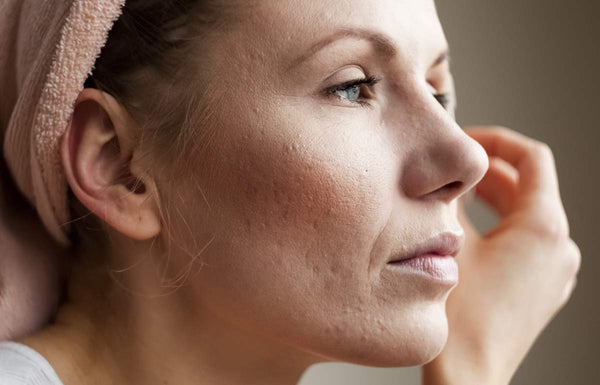Skin Care Advice

What Causes Acne: The Top 5 Culprits
Acne is one of the most common skin conditions that people suffer from, and while it is more prevalent in teens, it can affect many people into their 30s or 40s. There are various treatments available for acne and acne scars that range from over-the-counter solutions to prescription creams, but what causes acne? The 5 top causes are listed below.
2. Dead skin cell buildup – Over time, our skin produces new skin cells and pushes older skin cells to the surface, where they flake off and shed away. Those who are prone to acne tend to exhibit an increased production of dead skin cells on the surface of the skin. These dead skin cells are also less likely to shed properly. This is a problem because the dead skin layer can block pores and trap sebum within them, causing whiteheads and breakouts.
3. Bacterial buildup – Propionibacterium acnes (P. acnes) is a type of bacteria that is present on most people’s skin. However, for those with acne, the population of these bacteria is drastically larger. When dead skin cells trap oil in the pores, it creates an oxygen-free environment that P. acnes thrive in. They digest the oil and produce waste that irritates the skin, causing it to become inflamed.
4. Hormonal changes – Acne itself is considered to be a hormonal disease, so it’s only natural that changes in hormone levels can cause acne. Increased androgen levels are linked to acne, likely due to the oil surplus the androgens generate. In women, estrogen is tied to acne as well. This connection makes it likely for acne flareups to occur more often during menstruation and, to a smaller degree, during menopause. Because of the menstrual cycle’s effects on acne, some doctors even prescribe birth control pills to women to regulate their hormone levels and thereby reduce acne.
5. Genetics – There is significant evidence that may indicate a strong connection between genetics and acne. In 2002, a study of over 1,500 female twin pairs concluded that 81% of the pairs had similar levels of acne. These results imply that other environmental factors contribute significantly less to acne development. Furthermore, another study of identical twins revealed that their rates of sebum excretion were almost identical, whereas these rates differed in fraternal twins. A third study revealed that having a close relative (a parent, sibling, or child) with acne made people 4 times as likely to experience acne.
The good news is that, as stated at the beginning of the article, there are plenty of treatments available to address acne, including serums, toners, creams, and medications.
Read our other articles for more information on the best skin care ingredients to treat acne and the most effective ingredients for fading acne scars.
